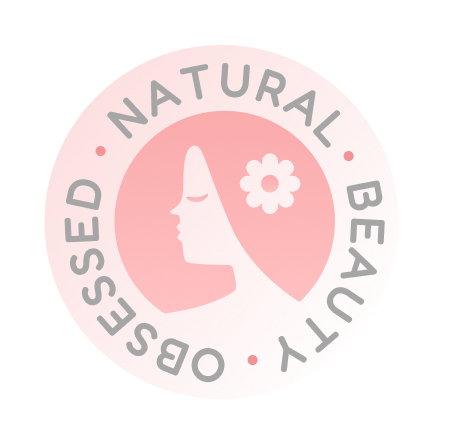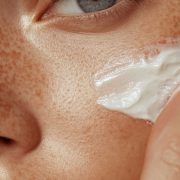Tailor Your Hair Care to Match Your Unique Hair Needs with 100% PURE
Posted on May 12, 2024 Written by: 100% PURE®

Managing a dry scalp can be a frustrating experience, often accompanied by itchiness, flakiness, and discomfort. It’s a common concern that requires careful attention to prevent further irritation and maintain overall scalp health. One crucial aspect of managing a dry scalp is determining the appropriate frequency of shampooing. This decision can significantly impact the condition of your scalp and hair. In this section, we’ll delve into the importance of choosing the right shampoo frequency and how incorporating 100% PURE’s naturally formulated shampoos can be a game-changer in nurturing both your scalp and hair.
A dry scalp can be an uncomfortable and often embarrassing condition. It manifests through symptoms like itching, flaking, and irritation, which can disrupt our daily lives. Understanding the root causes of dry scalp is crucial in effectively managing and treating this condition. From environmental factors to dietary habits and hair care products, various elements contribute to the imbalance of the scalp’s moisture levels.
Weather Changes:
One of the primary culprits behind a dry scalp is the fluctuation in weather conditions. Exposure to extreme temperatures, particularly cold and dry air, can strip the scalp of its natural oils, leaving it dehydrated and prone to irritation. Similarly, excessive heat from heaters or prolonged sun exposure can also exacerbate dryness, leading to discomfort.
Diet:
Believe it or not, what you eat can significantly impact the health of your scalp. A diet lacking in essential nutrients like vitamins and minerals can contribute to dryness. Particularly, deficiencies in omega-3 fatty acids, vitamin A, and vitamin E have been linked to dry scalp issues. Incorporating foods rich in these nutrients, such as fatty fish, nuts, seeds, and leafy greens, can help nourish the scalp from within and improve its overall condition.
Water Quality:
The quality of the water we use to wash our hair can also play a significant role in scalp health. Hard water, which contains high levels of minerals like calcium and magnesium, can leave behind residue that builds up on the scalp over time, leading to dryness and irritation. Using a water softener or a clarifying shampoo can help remove these deposits and prevent further damage to the scalp.
Inappropriate Hair Care Products:
The hair care products we use, including shampoos, conditioners, and styling products, can either help alleviate or exacerbate dry scalp issues. Harsh detergents and chemicals commonly found in commercial hair products can strip the scalp of its natural oils, leading to dryness and irritation. Opting for gentle, sulfate-free formulas that are specifically designed for dry or sensitive scalps can help maintain the scalp’s moisture balance without causing further damage.

Struggling with a dry scalp can be an uncomfortable and frustrating experience. From itching to flaking, it’s a condition that can significantly impact your comfort and confidence. One common question that arises is: how frequently should one shampoo when dealing with a dry scalp? Finding the right balance is crucial for maintaining scalp health while ensuring your hair looks and feels its best.
Understanding the Importance of Shampoo Frequency
Shampooing serves the purpose of cleansing the scalp and hair and removing dirt, oil, and product buildup. However, frequent shampooing can strip the scalp of its natural oils, exacerbating dryness and irritation. For individuals with dry scalp, the key is to strike a balance between cleanliness and preserving the scalp’s natural moisture.
Benefits of Reducing Shampoo Frequency
Reducing the frequency of shampooing can offer several benefits for those with a dry scalp:
-
Preservation of Natural Oils: The scalp produces natural oils (sebum) that moisturize and protect both the scalp and hair. By shampooing less frequently, you allow these oils to distribute evenly, nourishing and hydrating the scalp.
-
Less Stripping of Moisture: The scalp produces natural oils (sebum) that moisturize and protect both the scalp and hair. By shampooing less frequently, you allow these oils to distribute evenly, nourishing and hydrating the scalp.
-
Improved Scalp Health: Allowing the scalp’s natural ecosystem to thrive can promote better overall scalp health. It can help balance oil production, reduce inflammation, and minimize sensitivity.
Guidelines for Shampoo Frequency
While the ideal shampoo frequency varies depending on individual factors such as hair type, lifestyle, and environmental conditions, a general guideline for those with dry scalp is to shampoo less frequently:
Every Other Day or Every Few Days: Instead of shampooing daily, consider washing your hair every other day or every few days. This allows enough time for natural oils to nourish the scalp without allowing buildup to become excessive.
Use a Gentle, Moisturizing Shampoo: Opt for sulfate-free, moisturizing shampoos formulated specifically for dry scalp. These shampoos clean the scalp without stripping away essential moisture, helping to maintain scalp health.
Listen to Your Scalp: Pay attention to how your scalp feels and reacts to your current shampooing routine. If you notice increased dryness, itching, or flaking, it may be a sign that you need to shampoo less frequently or switch to a milder shampoo.
Adjusting Shampoo Frequency
There are times when it may be necessary to adjust your shampooing frequency based on lifestyle or environmental changes:
Exercise and Sweat: If you lead an active lifestyle and sweat regularly, you may need to shampoo more frequently to remove sweat and buildup from the scalp. In such cases, consider rinsing your hair with water between shampoos to refresh the scalp without overwashing.
Environmental Factors: Environmental factors such as humidity levels, pollution, and exposure to hard water can affect the condition of your scalp. In dry or polluted environments, you may need to shampoo less frequently to prevent further drying out of the scalp.
Hair Products: If you use styling products regularly, they can accumulate on the scalp, leading to buildup and potential irritation. Consider using a clarifying shampoo occasionally to remove residue, but be cautious not to overdo it, as clarifying shampoos can be drying.
When it comes to managing a dry scalp, the journey often starts with selecting the right shampoo. The importance of this decision cannot be overstated, as the right shampoo can make all the difference in providing relief and nourishment to your scalp. Opting for a shampoo specifically formulated for dry scalp concerns is the first step towards achieving a healthier, more comfortable scalp.
Look for Hydrating and Soothing Ingredients
The key to combatting a dry scalp lies in choosing a shampoo that is packed with hydrating and soothing ingredients. These ingredients work together to replenish moisture, soothe irritation, and restore balance to the scalp. Keep an eye out for shampoos enriched with ingredients like coconut oil, honey, neem, and burdock, as they are known for their moisturizing and calming properties.
Recommended Shampoos for Dry Scalp
When it comes to selecting the perfect shampoo for a dry scalp, there are a few standout options that are worth considering:
This restorative shampoo from 100% PURE is a game-changer for those struggling with dry scalp issues. Infused with the goodness of honey and virgin coconut oil, this shampoo delivers intense moisture to parched scalps, leaving them feeling nourished and revitalized. For optimal results, pair it with the for an extra dose of hydration and softness.
Formulated with a blend of coconut oil and seaweed collagen, the Moisture Drench Shampoo is another excellent choice for combating dry scalp woes. This shampoo works to hydrate and strengthen the scalp, while also promoting overall scalp health. For best results, complement it with the , or for an added boost of moisture, consider using the Honey & Virgin Coconut Conditioner.
For those dealing with excess oiliness and dandruff flakes along with a dry scalp, the Burdock & Neem Healthy Scalp Shampoo is a fantastic option. Enriched with the goodness of burdock and neem, this shampoo helps to purify the scalp, control oil production, and eliminate dandruff flakes, all while providing much-needed moisture to dry scalp areas. Pair it with the for optimal results.

Taking care of your scalp is essential for maintaining healthy hair and preventing dryness and irritation. Proper shampooing techniques and scalp care can make a significant difference in managing dry scalp issues. Here are some practical tips to help you maintain a healthy scalp:
Use Lukewarm Water: When shampooing your hair, opt for lukewarm water instead of hot water. Hot water can strip away natural oils from your scalp, leading to further dryness. Lukewarm water helps to cleanse your scalp effectively without causing unnecessary dryness.
Choose a Gentle Shampoo: Select a shampoo specifically formulated for dry scalp or one that is free from harsh chemicals like sulfates and parabens. These chemicals can be harsh on the scalp and strip away its natural oils, exacerbating dryness. Look for shampoos containing moisturizing ingredients such as glycerin, shea butter, or coconut oil to help hydrate and nourish your scalp.
Massage Gently: While shampooing, gently massage your scalp with your fingertips using circular motions. Avoid using your nails, as this can cause irritation and further exacerbate dry scalp issues. Massaging your scalp helps to stimulate blood circulation and promote the distribution of natural oils, keeping your scalp hydrated and healthy.
Rinse Thoroughly: Ensure you rinse your hair and scalp thoroughly after shampooing to remove any residue. Leftover shampoo or product buildup can weigh down your hair and contribute to scalp irritation. Use lukewarm water to rinse until the water runs clear, indicating that all shampoo and impurities have been washed away.
Occasional Conditioning Masks: Consider incorporating occasional conditioning masks into your hair care routine to provide extra hydration to your scalp. Look for masks specifically designed for dry or sensitive scalps, containing ingredients like argan oil, avocado oil, or honey, which help to moisturize and soothe the scalp.
Natural Oil Treatments: Natural oils such as coconut oil, jojoba oil, or olive oil can also be beneficial for treating dry scalp. Massage a small amount of oil into your scalp and leave it on for at least 30 minutes before shampooing. These oils help to hydrate the scalp, reduce inflammation, and alleviate dryness.
Can washing my hair less often actually improve my dry scalp?
Washing your hair less frequently can indeed help improve a dry scalp. Overwashing can strip the scalp of its natural oils, leading to further dryness and irritation. By spacing out your shampooing sessions, you allow your scalp’s natural oils to replenish, helping to maintain moisture balance. However, it’s essential to find the right balance for your scalp type and lifestyle. Experiment with different shampoo frequencies to see what works best for you.
What ingredients should I look for in a shampoo for a dry scalp?
When choosing a shampoo for a dry scalp, look for gentle, moisturizing ingredients that nourish and hydrate the skin. Ingredients like coconut oil, argan oil, aloe vera, shea butter, and glycerin are excellent choices as they help to soothe and hydrate the scalp without stripping away natural oils. Additionally, avoid harsh chemicals such as sulfates and parabens, which can further dry out the scalp and exacerbate irritation.
How can I tell if my current shampoo is too harsh for my dry scalp?
There are several signs that your current shampoo may be too harsh for your dry scalp. These include increased itching, flakiness, redness, and a feeling of tightness or discomfort after washing. If you notice any of these symptoms, it’s a good idea to switch to a milder, more moisturizing shampoo formulated specifically for dry scalp.
Are there any natural remedies to help soothe a dry scalp?
Yes, there are several natural remedies that can help soothe a dry scalp. These include regular scalp massages with nourishing oils such as coconut oil, olive oil, or jojoba oil. These oils help to hydrate the scalp and improve circulation, promoting healthier hair growth. Additionally, incorporating ingredients like apple cider vinegar, aloe vera, and honey into your hair care routine can help to soothe irritation and restore moisture balance.
WShould I change my hair care routine with the seasons if I have a dry scalp?
Yes, it’s a good idea to adjust your hair care routine with the changing seasons if you have a dry scalp. During the colder months, the air tends to be drier, which can exacerbate scalp dryness. Consider using a more moisturizing shampoo and conditioner during this time and incorporating deep conditioning treatments into your routine. In the summer months, you may find that you need to shampoo more frequently due to increased sweating and oil production. Experiment with different products and routines to find what works best for your scalp throughout the year.
Managing a dry scalp requires a personalized approach that considers individual hair and scalp needs. Understanding the factors contributing to dryness, such as environmental conditions, hair care habits, and underlying health issues, is crucial in determining the appropriate shampooing frequency.
As discussed, shampooing too frequently can strip the scalp of its natural oils, exacerbating dryness, while infrequent washing may lead to product buildup and irritation. Finding the right balance is key, and this often involves experimentation to determine what works best for your scalp.
We’ve explored the benefits of using gentle, natural hair care products, such as those offered by 100% PURE. Their range of products is specially formulated to provide relief for dry scalp conditions without harsh chemicals or synthetic fragrances.
Ultimately, the journey to managing a dry scalp is about listening to your hair and scalp, adapting your routine as needed, and finding products that nourish and hydrate effectively. By taking a thoughtful and proactive approach to hair care, you can achieve a healthier, more balanced scalp and hair.




